In the realm of modern automotive repair, Diagnostics Scan Tools have become as indispensable as a wrench and socket set. These powerful tools provide a window into the complex electronic systems of vehicles, allowing mechanics and car enthusiasts to diagnose and troubleshoot issues with precision. But what exactly are diagnostics scan tools, and how can they benefit you?
Understanding Diagnostics Scan Tools: Your Key to Automotive Health
At their core, diagnostics scan tools are electronic devices that communicate with a vehicle’s onboard computer system, often referred to as the Engine Control Unit (ECU). The ECU acts as the brain of your car, monitoring a vast network of sensors that collect data on everything from engine performance to airbag deployment.
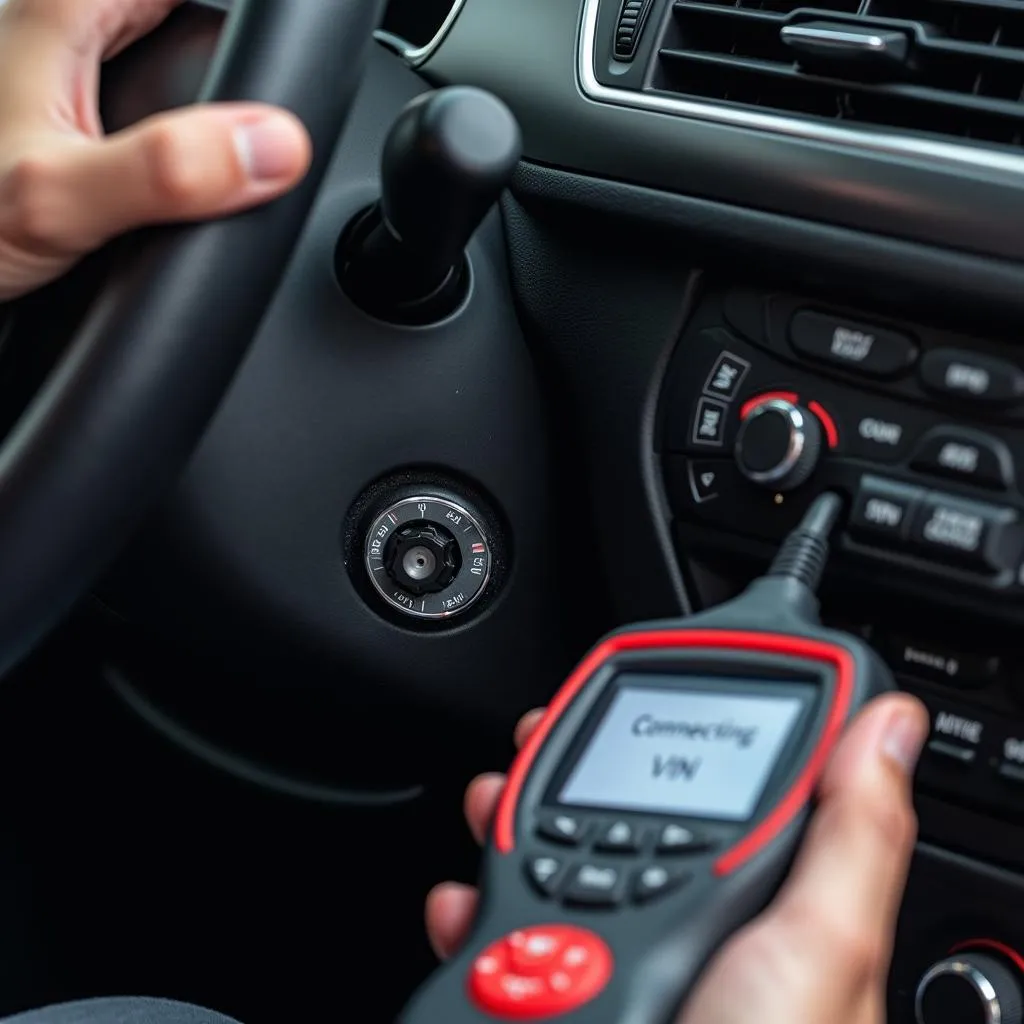 Mechanic connecting a diagnostics scan tool to a car's OBD-II port
Mechanic connecting a diagnostics scan tool to a car's OBD-II port
When you connect a diagnostics scan tool, it taps into this data stream, retrieving and deciphering diagnostic trouble codes (DTCs) stored in the ECU. These codes act as flags, indicating specific areas where the system has detected an anomaly.
scan tool diagnosis goes beyond simply revealing these cryptic codes. A good tool will translate them into plain English, providing descriptions of the potential issues and even suggesting possible solutions. This information can be invaluable in identifying the root cause of a problem, saving you time and money on unnecessary repairs.
Why are Diagnostics Scan Tools Essential?
The automotive landscape has dramatically shifted towards sophisticated electronic systems. Today’s cars are packed with sensors, actuators, and modules that interact in intricate ways. This complexity makes it nearly impossible to diagnose many issues without the aid of a dedicated scan tool.
Consider this scenario: Your check engine light illuminates, leaving you with a sense of dread and uncertainty. Without a diagnostics scan tool, you’re left guessing at the potential culprit. Is it a loose gas cap, a failing oxygen sensor, or something more serious? This ambiguity can lead to a frustrating and potentially expensive game of trial and error at the mechanic.
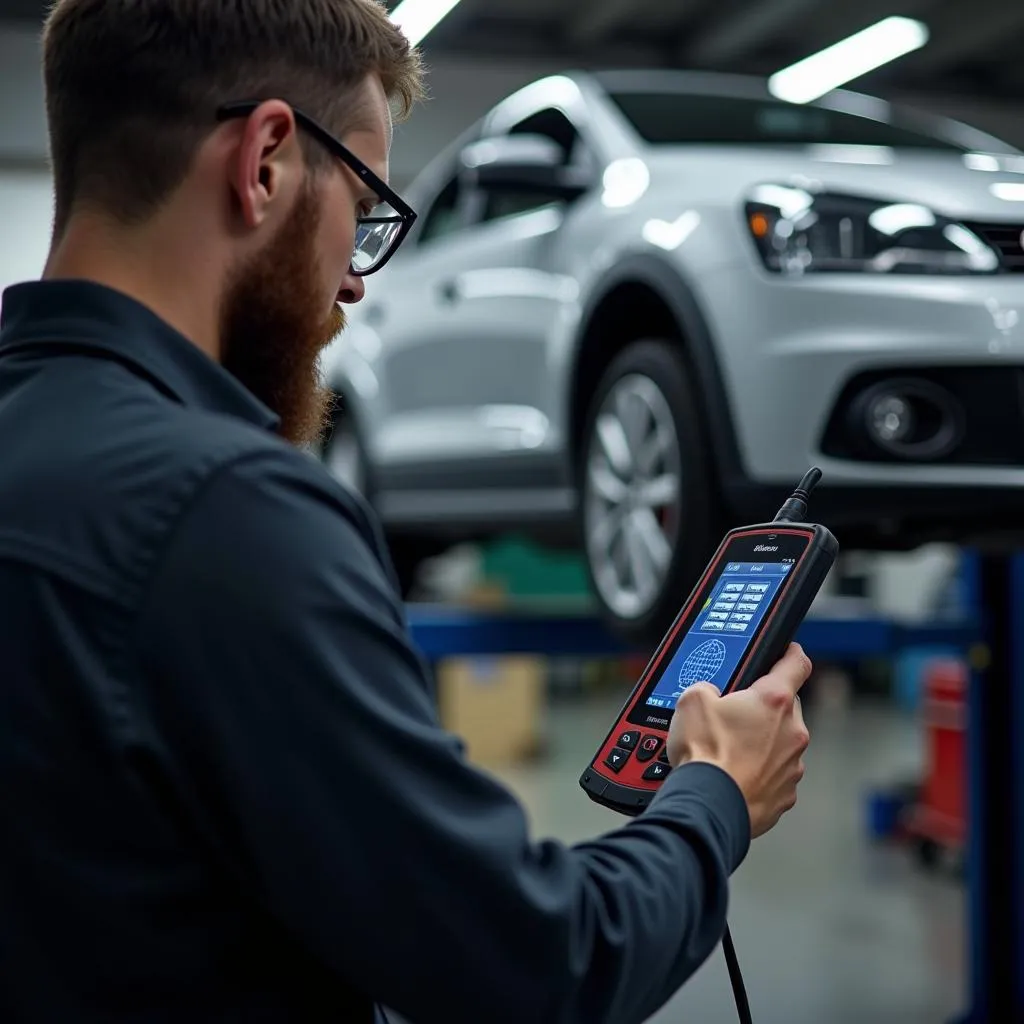 Mechanic using a diagnostics scan tool to diagnose a car in a garage
Mechanic using a diagnostics scan tool to diagnose a car in a garage
With a diagnostics scan tool, however, you can quickly identify the source of the problem. The tool will retrieve the specific DTC stored in the ECU, revealing the nature of the issue. Armed with this information, you can make informed decisions about the necessary repairs.
Types of Diagnostics Scan Tools: Finding the Right Fit
The market offers a wide array of diagnostics scan tools, catering to diverse needs and budgets. Let’s explore some of the common types:
1. Basic Code Readers:
As the name suggests, these entry-level tools are designed to retrieve and display DTCs. They are relatively inexpensive and user-friendly, making them suitable for car owners who want to perform basic diagnostics.
2. OBD-II Scanners:
These tools connect to the standardized OBD-II port found in most cars manufactured after 1996. They offer more advanced features than basic code readers, such as the ability to view live data streams from various sensors, reset the check engine light, and perform emissions readiness tests.
3. Professional-Grade Scan Tools:
Used by mechanics and automotive professionals, these tools are the most comprehensive and powerful option. They offer a wide range of features, including:
- Bi-directional control: This allows mechanics to interact with vehicle systems, such as activating solenoids, opening and closing valves, and running tests.
- Programming and coding: Advanced tools allow for programming new modules, updating software, and configuring vehicle settings.
- Extensive vehicle coverage: Professional-grade tools can communicate with a wide range of makes and models, including domestic, Asian, and European vehicles.
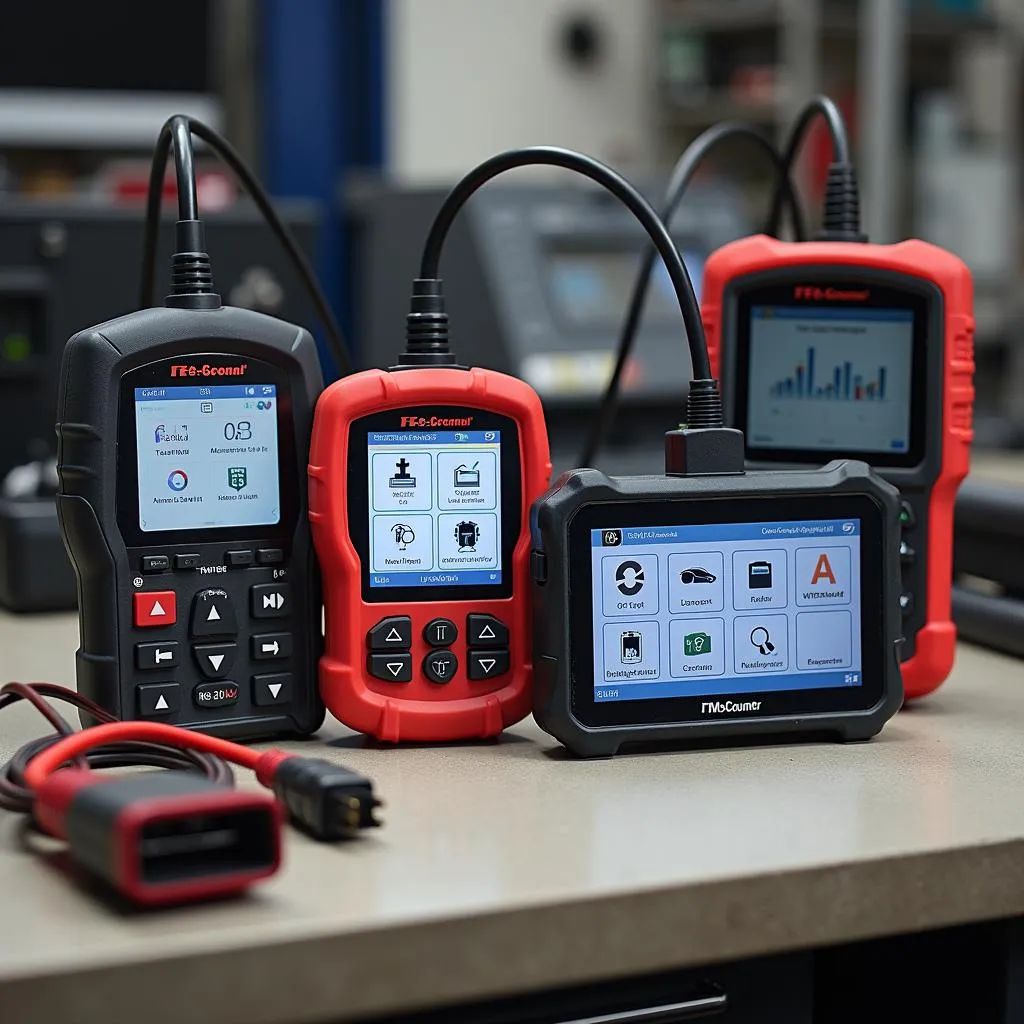 Various diagnostics scan tools laid out on a workbench
Various diagnostics scan tools laid out on a workbench
Choosing the Right Scan Tool: Factors to Consider
Selecting the right diagnostics scan tool can be daunting. Here are some factors to consider:
- Your skill level: If you’re a DIY enthusiast, a basic code reader or an OBD-II scanner might suffice. For professional use, a professional-grade tool is essential.
- Vehicle coverage: Ensure the tool you choose is compatible with the make, model, and year of your car, or the vehicles you typically work on.
- Features: Consider the specific features you need, such as live data streaming, bi-directional control, or programming capabilities.
- Budget: Diagnostics scan tools vary widely in price, so set a budget beforehand to narrow down your options.
Diagnostics Scan Tools: Empowering Car Owners and Professionals Alike
“In today’s automotive landscape, a diagnostics scan tool is no longer a luxury—it’s a necessity,” says Jake Anderson, Senior Automotive Engineer at CARW Workshop. “Whether you’re a car enthusiast or a seasoned mechanic, these tools provide invaluable insights into the health and performance of modern vehicles.”
iphone scan tool can empower you to take control of your car’s maintenance. By understanding the information these tools provide, you can make informed decisions about repairs, avoid unnecessary expenses, and keep your vehicle running smoothly for years to come.
Ready to Demystify Your Car’s Electronics? Contact CARW Workshop!
Need help choosing the right diagnostics scan tool for your needs? Our team of experts at CARW Workshop is here to help. Contact us at +1 (641) 206-8880 or visit our office at 4 Villa Wy, Shoshoni, Wyoming, United States. Let us help you unlock the power of diagnostics and keep your car running at its best.



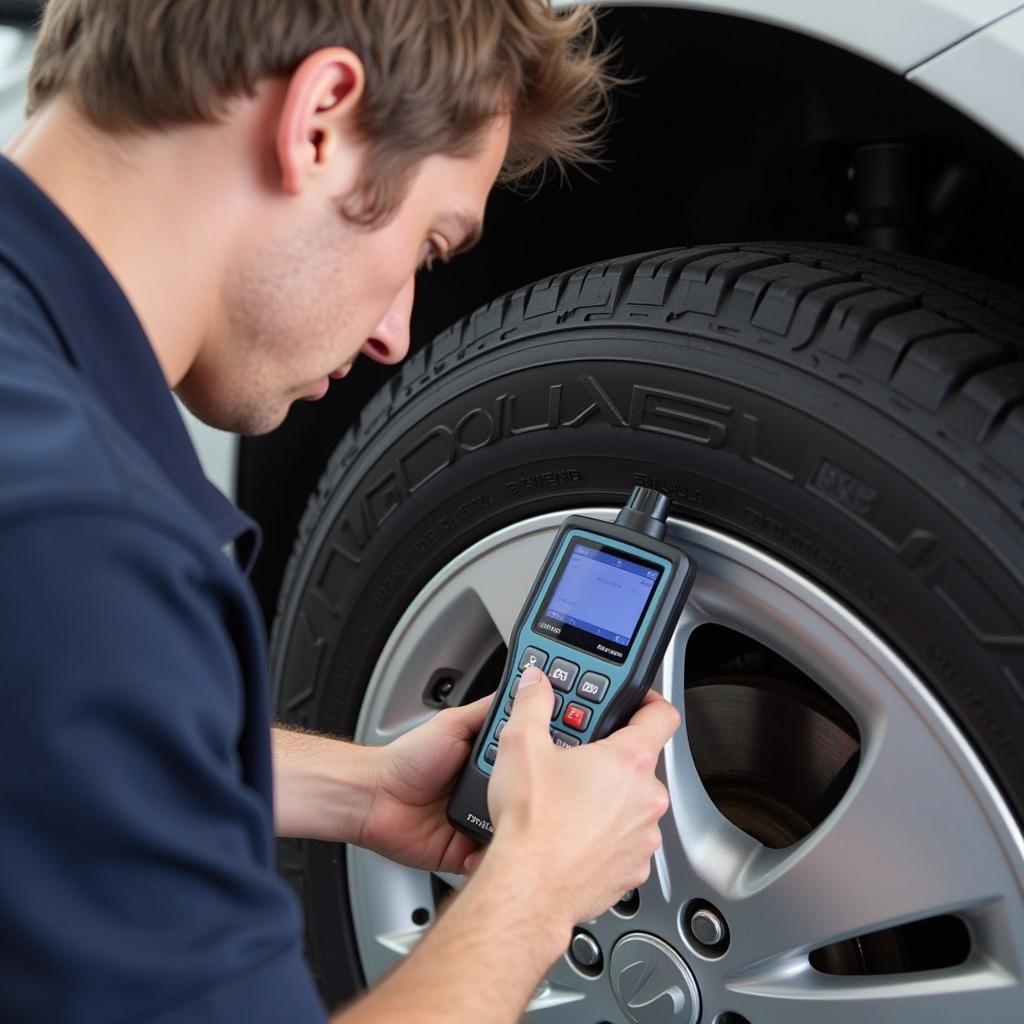
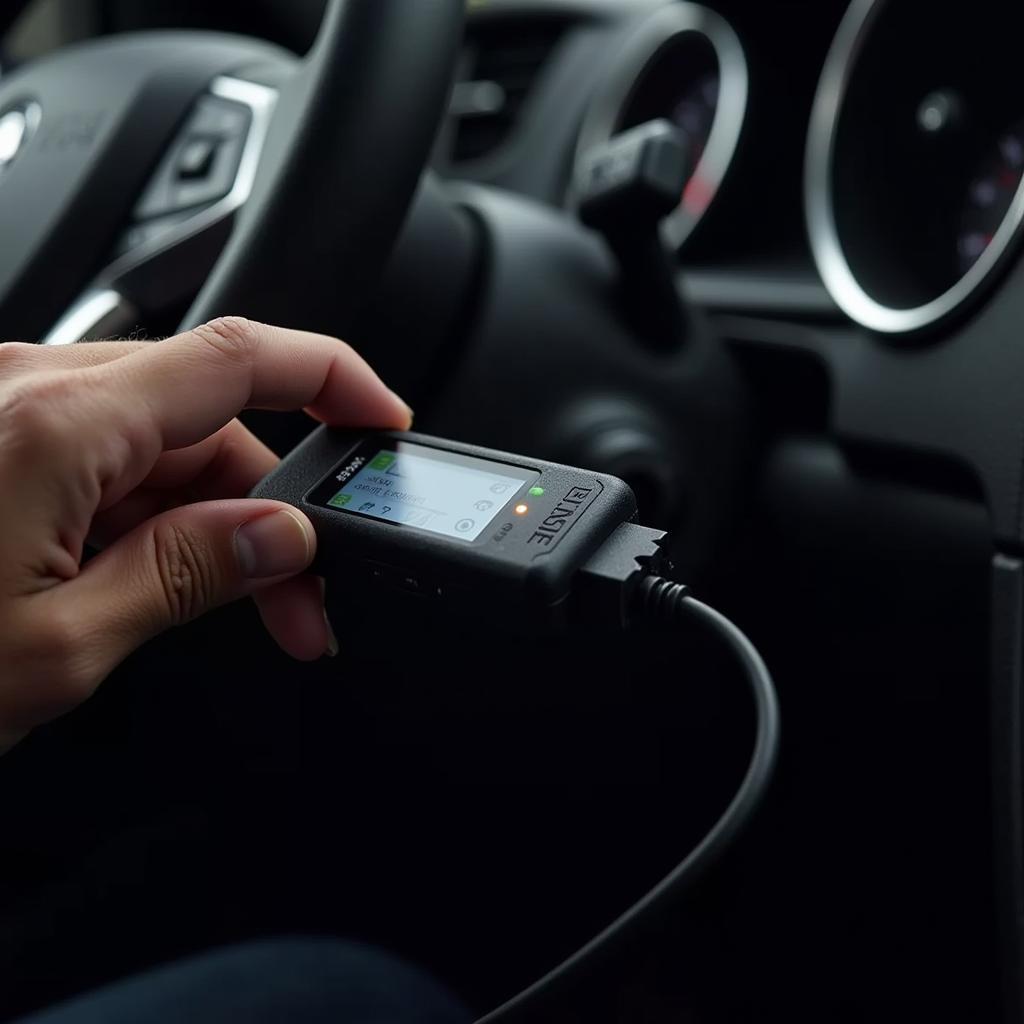
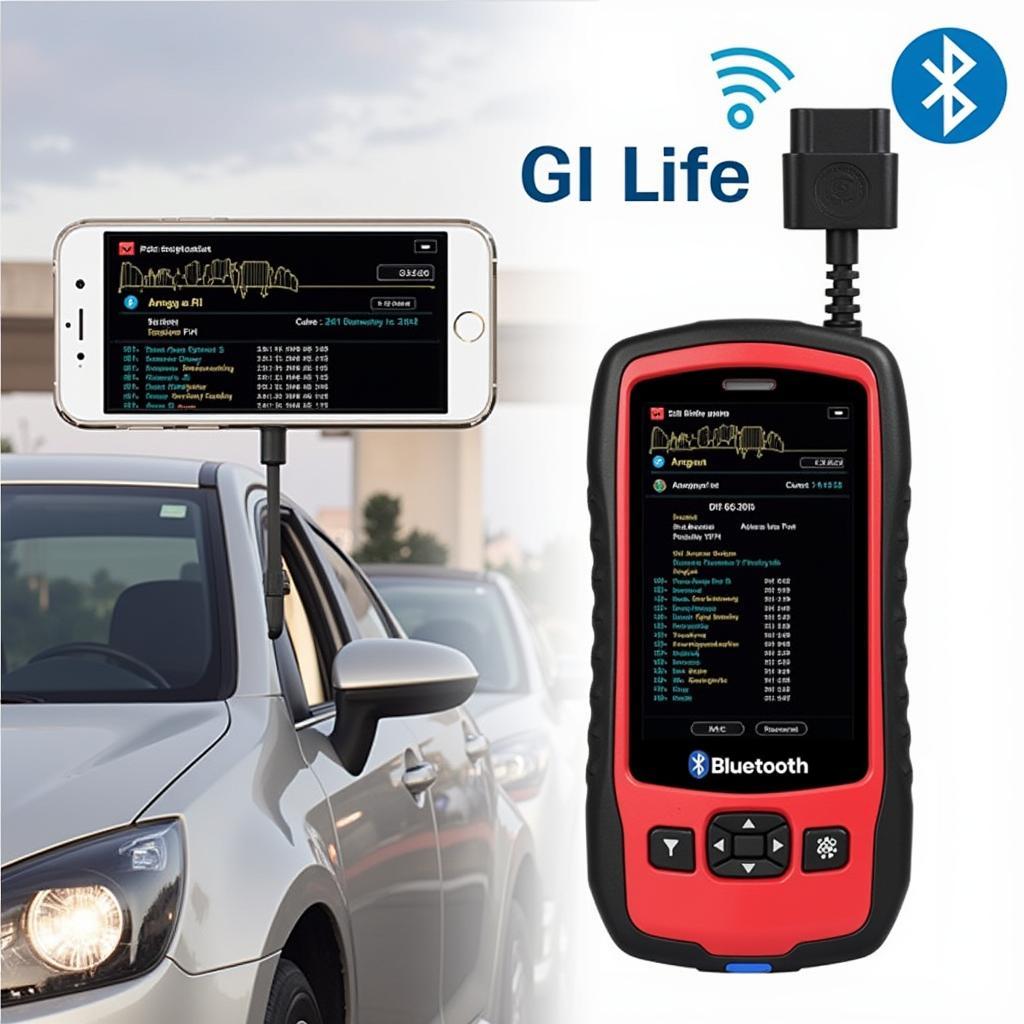


3 Responses